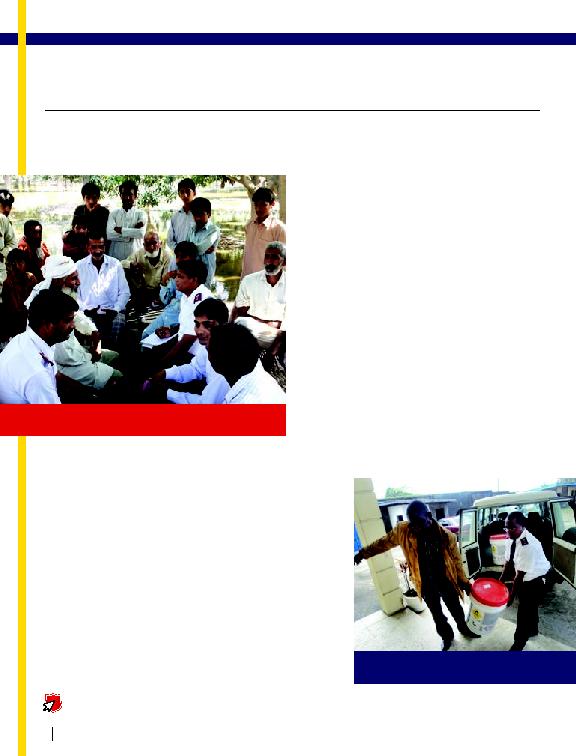
of Liberia this fall, Salvation Army Emergency Services focused
immediately on on the Eternal Love Winning Africa Hospital,
carrying Ebola. The Army's William Booth Clinic team had access to a number of
family homes under quarantine and provided clean drinking water, food packages
and protective clothing to about 5,000 individuals.
daily contact with Army leaders and project officers in West Africa and updates
General Andr� Cox on the situation.
Cross and M�decins Sans Fronti�res (Doctors Without Borders)
and friends worldwide to pray for physical and emotional healing, and to pray for the
health of all who seek to bring medical care to those who are suffering."
provided relief supplies to some of the 1.8 million
people affected by the worst flooding in a
floods and river surges, inundating great swathes of
northern Pakistan--particularly the Punjab, which is the
country's main agricultural area. More that 4,000 villages
have been seriously impacted, 3,500 in the Punjab alone. This region
has the strongest Salvation Army presence, home to 38,000 of the
Pakistan Territory's 45,000 soldiers. Although many Salvation Army
officers had their homes flooded, they joined with government
officials to distribute supplies. Using funds from International
Headquarters, the relief teams supplied many families in the
water and sewage. More than half a million people were evacuated.
scale response can be organized as funds become available. "A
donation of $15 provides emergency food for a family for a week,"
he explains. The Army will assist in the rebuilding process and
provide aid to offset shortfalls due to agricultural damage.
fight against Ebola.
of the hardest hit areas in the Punjab.